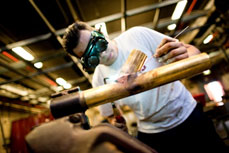
Employment and income
There’s an income benefit associated with having two or more qualifications. As the ABS reports it:
Average personal weekly income increased with the number of non-school qualifications completed. Men working full-time, who held two or more non-school qualifications, earned on average $813 per week more than their full-time working counterparts without a non-school qualification. Similarly, full-time employed females with multiple non-school qualifications earned an average $504 per week more than those working full-time without a non-school qualification.
Incomplete qualifications
There’s an interesting if small difference between VET and higher education qualifications:
In 2015, 2.7 million (18%) Australians aged 15-64 years had at least one incomplete non-school qualification. Of these, Bachelor degrees were the most common (37%) incomplete non-school qualification, followed by Certificate level qualifications (34%).
The qualification-job match
The qualification-job match isn’t always as close as you might think – 55 per cent of employed people held a non-school qualification that was relevant to their current job. The other side of the story, then, is that 45 per cent of employed people had qualifications that weren’t relevant. Part of the explanation for this apparent mismatch is that over time people gain skills on the job that lead them away from where they started out. The report notes that:
Employed people who completed their highest non-school qualification within the last five years (between 2010–2015) were more likely than those who completed their highest qualification more than 15 years ago (before 2000), to be working in the same field as their highest non-school qualification (70% compared with 60% respectively).
There are some big variations according to the kind of work you do though. Only 26% of people employed in Accommodation and food services, and 29% in Retail trade industries, had a relevant non-school qualification. However, 80 per cent of people employed in the Education and training industry held jobs relevant to their highest non-school qualification – the highest of all.








